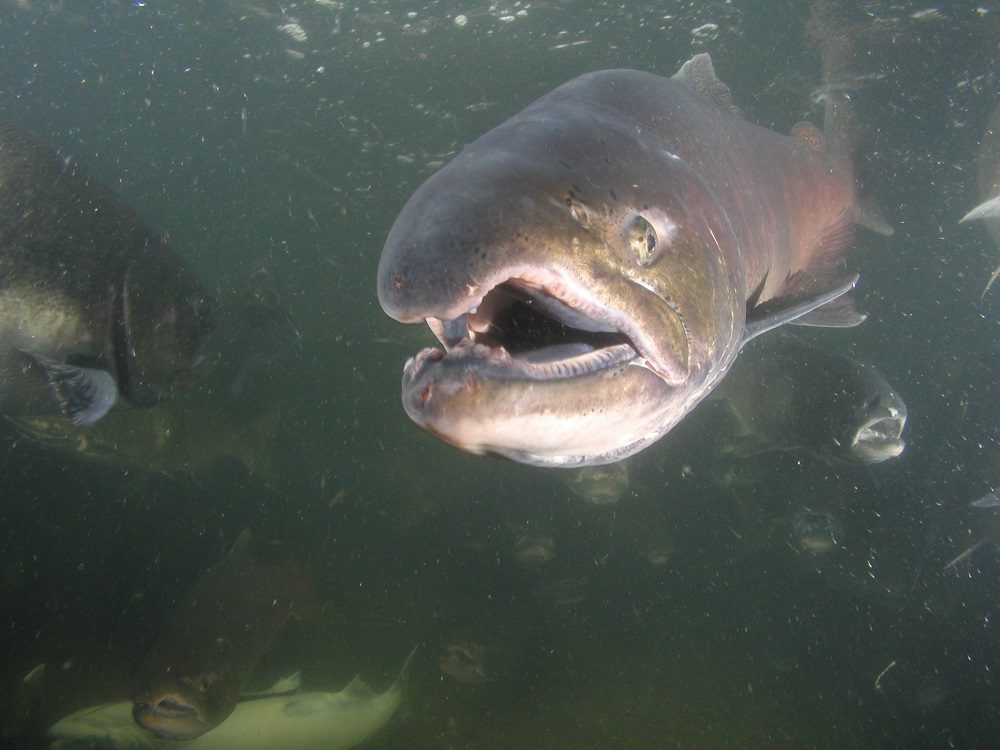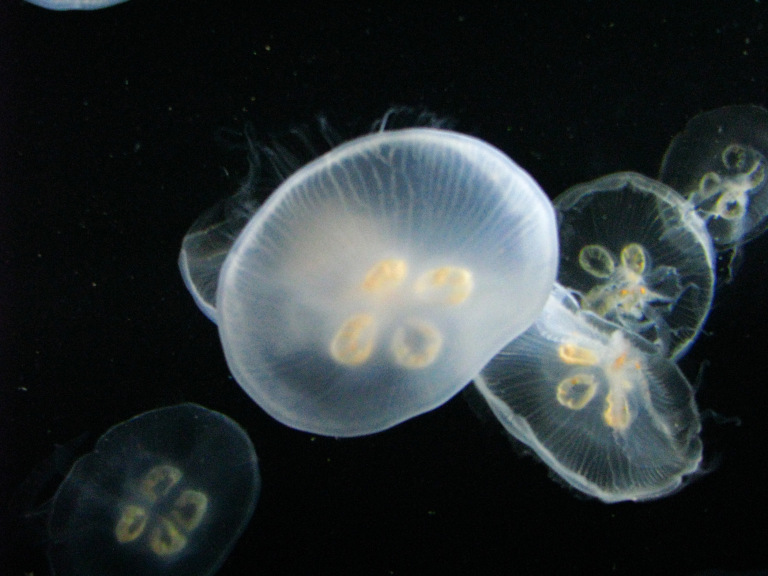Klamath River - Lower Fish Report for 4-14-2017
Low salmon projections lead to restrictions/closures
Klamath River - Lower - Klamath, CA (Humboldt County)

by CDFW
4-14-2017
Website
Historically low numbers of fall-run and winter-run Chinook salmon have prompted the California Fish and Game Commission (FGC) to drastically limit the state’s salmon fishery for the remainder of 2017.
In the Klamath Management Zone, which is the area between the Oregon/California border and Horse Mountain (40° 05’ 00” N. latitude), the entire ocean salmon fishery will be closed, as will the fall-run Chinook fishery on both the Klamath and Trinity rivers.
Returning stock projections for fall-run Chinook in the Klamath River Basin are the lowest on record. By limiting, and in some cases closing, the fisheries for the remainder of 2017, the FGC hopes to maximize fall- and winter-run Chinook survival and reproduction and support efforts to rebuild the fisheries.
“Closing an entire fishing season is not something that I take lightly, but the survival of the fall-run Chinook in the Klamath and Trinity rivers is at stake,” said California Department of Fish and Wildlife (CDFW) Director Charlton H. Bonham. “CDFW and other fisheries management partners agree that these restrictions are necessary to help recover this vital species.”
Inland, spring-run Chinook fishing will still be allowed through Aug. 14 on the Klamath River and through Aug. 31 on the Trinity River. After these dates, both fisheries will close for the remainder of the calendar year. However, the nearby Smith River will remain open for fall-run Chinook, and there are additional opportunities in southern Oregon rivers. During the salmon season closure, steelhead angling will still be allowed in both the Klamath and Trinity rivers.
The ocean salmon season north of Horse Mountain will be completely closed in 2017. All areas south of Horse Mountain opened on April 1 and will remain open, with some restrictions, as follows.
- In the Fort Bragg area, which extends from Horse Mountain to Point Arena (38° 57’ 30” N. latitude), the season will continue through May 31, reopening Aug. 15 and extending through Nov. 12 with a 20-inch minimum size limit for the season. The summer closure in this area is also related to the limited numbers of Klamath River fall-run Chinook.
- In the San Francisco area, which extends from Point Arena to Pigeon Point (37° 11’ 00” N. latitude), the season will close on April 30 under a 24-inch minimum size limit, and reopen on May 15 through Oct. 31 with a 20-inch minimum size limit.
- In the Monterey area between Pigeon Point and Point Sur (36° 18’ 00” N. latitude), the season will continue through July 15, while areas south of Point Sur will continue through May 31. The minimum size limit south of Pigeon Point will remain 24-inches total length.
Other restrictions for these areas are as follows:
- The daily bag limit is two salmon per day of any species except coho salmon and no more than two daily bag limits may be possessed when on land. On a vessel in ocean waters, no person shall possess or bring ashore more than one daily bag limit. CDFW reminds anglers that retention of coho (also known as silver salmon) is prohibited in all ocean fisheries.
- For anglers fishing north of Point Conception (34° 27’ 00” N. latitude), no more than two single-point, single-shank barbless hooks shall be used, and no more than one rod may be used per angler when fishing for salmon or fishing from a boat with salmon on board. In addition, barbless circle hooks are required when fishing with bait by any means other than trolling between Horse Mountain and Point Conception.
Shortened ocean salmon seasons in northern California were necessary partly because data show that Klamath River fall-run Chinook are most likely to be caught in ocean areas near the Klamath River mouth, with impacts on this stock decreasing the further south fishing opportunity occurs.
Concerns are also high for endangered Sacramento River winter-run Chinook, contributing to the decision to shorten ocean fishing seasons in areas south of Pigeon Point. Three consecutive years of low juvenile numbers, coupled with unusually warm and unproductive ocean conditions, led fishery managers and industry representatives to implement protections beyond those required by the Endangered Species Act biological opinion and the federal salmon Fishery Management Plan’s harvest control rule. Fishery data suggest that winter-run Chinook are concentrated south of Pigeon Point, especially south of Point Sur, during the summer and early fall. Ocean fishery closures and size limit restrictions implemented in the Monterey management areas are intended to minimize contact with winter-run Chinook.
Klamath fall-run Chinook are currently classified under the federal plan as “approaching an overfished condition.” Given the poor return of adults to the river the past two years, coupled with returns this fall that are expected to be just as poor or even worse, the stock is expected to be classified as “overfished” in 2018. As a result, CDFW will be working with federal and tribal partners to develop a Rebuilding Plan for Klamath River fall-run Chinook next year.
CDFW and the FGC are tasked with managing the state’s fishery resources to ensure sustainability. Given the stock status, extra precaution is warranted. Every fish counts this year – especially every fish returning to the river to spawn.
< Previous Report Next Report >
< Previous Report Next Report >
More Reports

4-13-2017
Question: I would love to introduce moon jellies into my home saltwater aquarium. Can I collect them myself or do...... Read More

4-12-2017
The California Department of Fish and Wildlife (CDFW) is now accepting applications for a limited number of deer and pig...... Read More

Website Hosting and Design provided by TECK.net